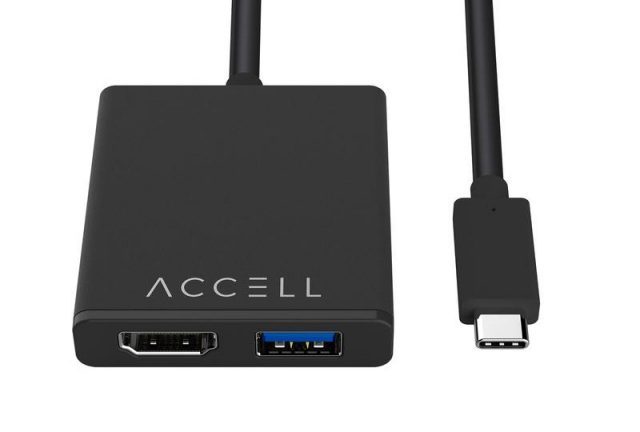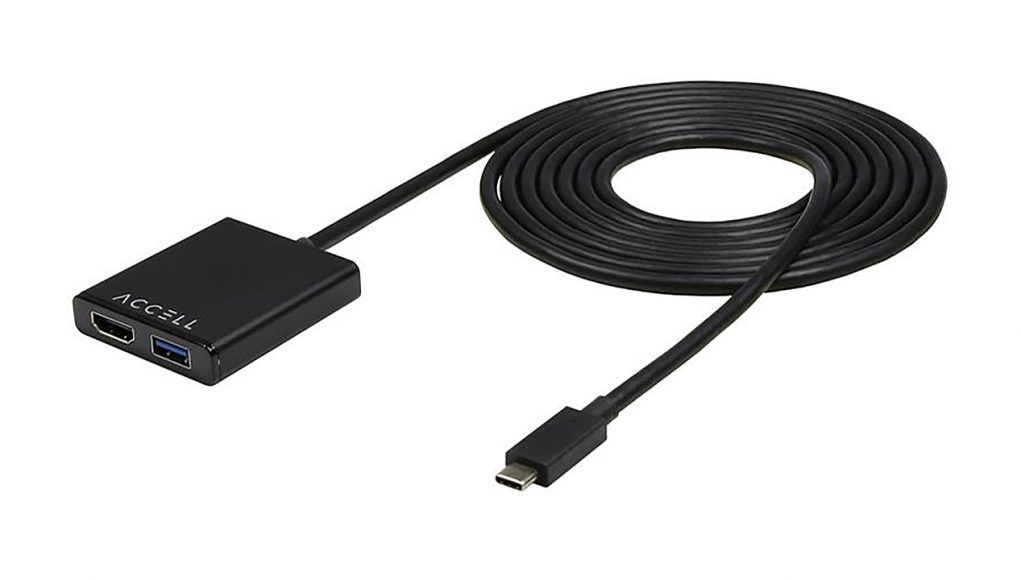Accell Cables, a provider of adapters, cables, and power supplies, is launching a VR adapter which condenses a headset’s cables into a single USB-C cable (for USB-C equipped GPUs) and extends the tether.
The upcoming Accell VR Adapter accepts the HDMI and USB-A cables from the Rift or Windows VR headsets and condenses them into a single USB-C cable to be attached to any USB-C equipped NVIDIA RTX GPU, and also some NVIDIA laptop GPUs with USB-C compatibility. Accell does not note support for any AMD GPUs.
For those running short on USB and video ports, the adapter could free up two commonly used ports in favor of the less often used GPU USB-C port. In addition to simplifying the connection to the PC, the Accell VR Adapter also has an extra eight feet of cable, offering a lengthy extension over the default tether (which runs around 13 feet).
The adapter sports an Oculus Ready certification, marking it as officially compatible with the Rift, though the company also says that it’s compatible with Windows VR headsets. Vive is not mentioned as being supported, likely because it requires a separate power adapter.
Accell says that the adapter will launch on January 14th for $50, available from Amazon and direct from the company’s site.

You may be curious as we were about whether or not the Accell VR Adapter is using the VirtualLink protocol, which is also based on USB-C. We’ve confirmed this is not the case; Accell notes that the adapter uses a standard DisplayPort Alt-mode of USB-C rather than VirtualLink which is a separate Alt-mode with a different configuration of data lanes. As the supported headsets weren’t built with VirtualLink in mind in the first place, the adapter not specifically using VirtuaLink doesn’t seem to make much of a difference.







